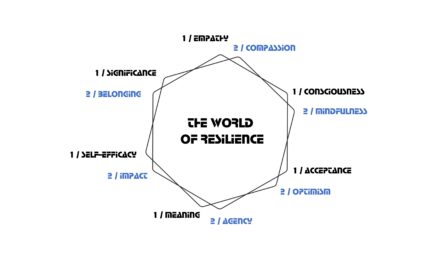There is a lot of evidence that stress is one of the main causes of many diseases such as heart attacks, diabetes, asthma, cancer, osteoporosis, anxiety, depression, insomnia, memory loss or premature ageing.
But what role does “toxic” leadership play in workplace stress, and what are the signs of a toxic leader?
In his new book, Professor Simon L. Dolan, Professor at the Advantere School of Management, has set out in search of the characteristics of toxic leaders. His research shows five main characteristics, including envy of one’s own team’s success and constant worry about competition or “enemies” in the workplace.
“There are many factors that contribute to a toxic personality, including an obsessive need to prove oneself to others, but above all a deep-rooted lack of self-esteem,” explains Professor Dolan. “This is usually the result of a lack of ethical and emotional development in the course of their lives.”
Professor Dolan’s new book – De-Stress at Work – is designed to help employees recognise whether their manager is toxic and what they can do about it. “Leadership can determine the success or failure of a company. A bad leader can demotivate teams, lower morale and the impact on teams can be devastating,” says Professor Dolan.
He has broken down the characteristics of toxic leaders into five key characteristics:
- Are envious of their own team’s success
- Constantly worry about competitors or “enemies” in the workplace
- Often take credit for the work of others
- Constantly compare themselves with others
- Are of the opinion that their self-worth depends solely on their most recent successes
According to Professor Dolan, one of the main problems with toxic leaders is their belief that they need “superhuman qualities such as stamina and strength”. “That can be really damaging because they have to hide their feelings, even when they’re under a lot of pressure.”
Pretending to be a superhuman is damaging to both body and soul – the key is to realistically assess your strengths and weaknesses. A manager must therefore be able to proactively manage their emotions so well that they have a calming and rational effect on their teams.
“As a manager, you can do a lot to prevent yourself from becoming a toxic manager. This includes improving communication with your team and using relaxation techniques,” says Professor Dolan. “Although managers are expected to be self-confident, it is important not to confuse this with overconfidence.”
A great leader needs to be respectful, supportive and growth-promoting – not just someone who is confident.





